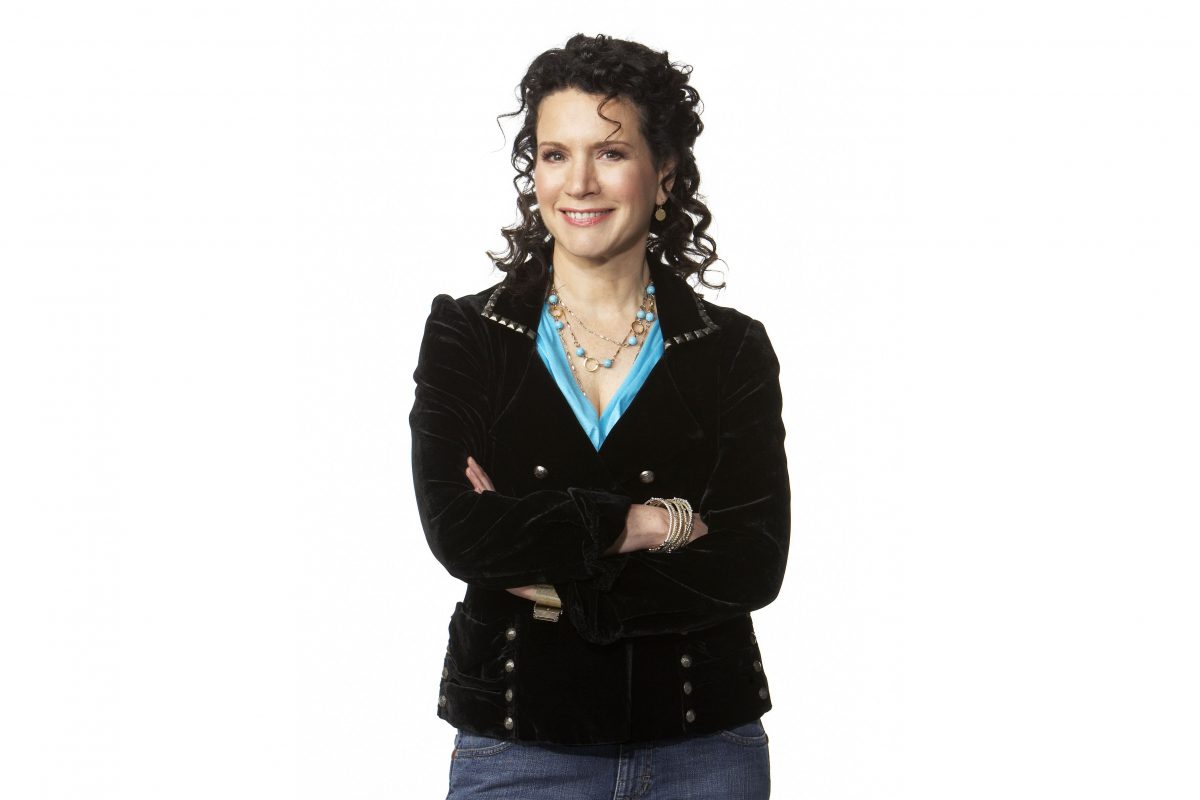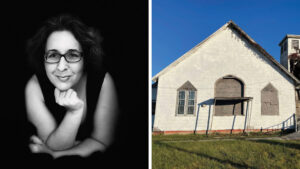Susie Essman has made a career out of being abrasive.
For the past 35 years, audiences have embraced the no-holds-barred style of the stand-up comedian best known for her portrayal of Susie Greene on HBO’s “Curb your Enthusiasm.” Now, Essman, 63, a native of The Bronx, N.Y., is wrapping up her role as Bobbi Wexler on Comedy Central’s irreverent series, “Broad City.”
In advance of her performance on May 16 at Baltimore Hebrew Congregation’s ninth annual “Night of the Stars,” Essman spoke with Jmore.
In real life, would Susie Essman ever be friends with Susie Greene?
She would be somebody that I like and admire from afar, but I do not think we have that much in common. She is a Beverly Hills housewife. Not that there is anything wrong with that, but I just do not see our interests coinciding.
But I like her. I love playing her, and I missed her so much those years that we were not working [while the show was on hiatus].
What’s it like playing Ilana and Eliot’s mother on “Broad City”?
Well, Bobbi is nowhere near as angry and volatile as Susie Greene. She is similarly wacky. … But look at her daughter. The apple doesn’t fall far from the tree! Bobbi is also very, very loving. Her whole life revolves around her children. She reads non-stop, and everything she reads, she believes, so she has to warn her children about this or that. She is somebody who is a little bit paranoid about the world around her.
Do you worry that your TV characters perpetuate stereotypes about Jewish women?
Are they stereotypes? I do not think so. They are both Jewish women. I’m a woman. I’m Jewish. I’m a New Yorker. These are things that just inform who I am by nature, and those were the circumstances that I grew up in. So they’re just deep inside of me, and I do not really think about them that much.
Does being Jewish inform your comedy?
There is a reason why over the years there have been so many great Jewish comedians. The Jews defined what comedy is in our culture. Not so much in my generation, but in the generations before. You know, coming up in the 1940s, ’50s and ’60s. … the people that I grew up watching.
First, they were immigrants, outsiders looking in. I think in comedy, whether it’s Jewish comedians or African-American comedians, or women … it’s generally people who are observing the American culture from the outside. They see things differently and are able to put a twist on it.
Second, thinking specifically in Judaism, the nature of the religion itself lends itself to comedy. My husband is Catholic, so I see a huge difference. In Catholicism, you listen to what the Church says, and you listen to what the priest says, and you just follow that. In Judaism, there’s studying of the Talmud and the Torah, which is all about questioning. And I think that is the nature of it. That’s what comics do. And that’s what creative people do. They are constantly questioning the status quo.
But I think the other comes from the inherent nature of being a Jew — for men, not for women — for all those years, needing to be able to read, needing to be able to study, needing to be able to analyze and question.
It seems like we’re in a golden era for Jewish women in comedy. How do you see your place in this moment?
[“Broad City’s”] Abbi [Jacobson] and Ilana [Glazer] always say that I laid groundwork for them, and I probably did. When I was growing up, there was Joan [Rivers] and Phyllis [Diller]. That was it. And when you think about it, Phyllis had to dress up in all these crazy outfits even though she was a beautiful woman. Joan had to be incredibly self-deprecating in order to be accepted. They could not just be out there and be strong, attractive women speaking their mind. It was not acceptable for them to be that way. So I think things changed when I came up in the ‘80s, and there were very few of us at that time.
What can folks expect from your show at Baltimore Hebrew Congregation?
Expect the unexpected, because I never know what I am going to do until I get up there and I feel the crowd. But they can expect to laugh! And when people are laughing, they are open, so maybe you can slip some ideas in or some thoughts that they had not previously thought about.
I have been doing this for 35 years, and on those nights when I do not feel like going on, I usually say to myself, “Alright, I am going to go out and unclog some arteries.” Because I am bringing a good thing into the world, hopefully. Laughing releases positive endorphins. It’s healing. There have been a million studies about how healing laughter is.
For information, visit baltimorehebrew.org.
Ira Gewanter is a Baltimore-based freelance writer.





